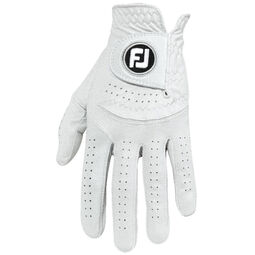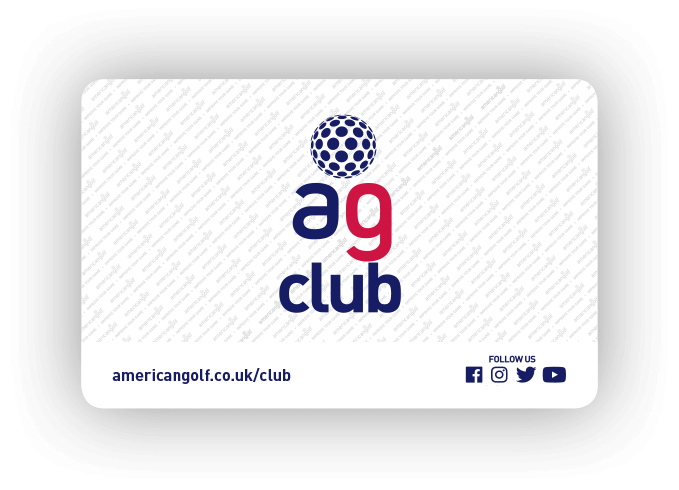Shop our range of golf balls from all the top brands including; Titleist and the Titleist Pro V1, Callaway Golf, Srixon and TaylorMade.
Golf Balls
Gender
Brand
Number of Balls
Ball Type
Price range
Category
Gender
Brand
Number of Balls
Ball Type
Price range
Category
Golf Balls
American Golf provides players with high-quality, widespread golf ball selection to cater for all golf ammunition requirements. Most golf balls are unisex but we also provide a wide selection of both male and female golf balls to ensure each and every player is fully stocked up when taking to the course. Our fabulous selection includes golf balls from the majority of leading golf brands including Srixon, TaylorMade, Titleist, Bridgestone Golf, Wilson Staff, Volvik, Challenge Golf, Honma, Wilson, Callaway Golf, Fazer, Rife, and The Golf Company. Usually, golf balls are purchased in the form of a dozen (12) ball packs which include 4 sleeves of 3 golf balls. Depending on the make and model we also provide options of 6 ball packs, 15 ball packs and 24 ball packs. Typically, a golf ball features a white outer coat which has been a traditional colour for a golf ball as far as the game remembers. Coloured golf balls have become increasingly popular due to their much-preferred visual benefits as for example a yellow golf ball contrasts against the green colour of grass which makes it easier to track and find. We therefore supply a range of golf balls from all different colours such as Green, Multi Coloured, Pink, Purple, Red, White and Yellow. American Golf caters for all golf ball types in order to improve a player’s game, whether it’s distance golf balls, premium golf balls, lake/practice golf balls or even novelty golf balls, browse and choose the most suited one to your game.
Distance
Distance golf balls help a player prioritise gaining the furthest distance possible. These are perfect for a beginner golfer or someone who severely struggles with distance when taking to the golf course. Distance golf balls are firmer and provide increased roll out in comparison to premium golf balls. Simply tee one up, let it rip and watch it roll forever down the fairway!
Premium
The premium golf ball is designed for the more confident player. Tour players will all use a range of different premium golf balls because these are made to spin less off the tee which delivers extreme distance on longer shots. However, on shorter shots around the greens these provide extreme spin which offers precise control of which any golfer at a fairly good level requires.Spin / Control
Spin and control golf balls are designed with an enhanced soft feel off the club face while also matching with explosive distance. This perfect combination allows a golfer to improve their control with the golf ball around the greens, making your short game a lot more accurate. These balls deliver a gradual descent which leads to greater accuracy because of a more stable flight.Lake / Practice
Lake and Practice golf balls tend to be recycled, refurbished and reused golf balls. Lake golf balls are formed by recycling used premium golf balls which divers have retrieved from depths of waters. Although these are therefore not brand new, they play very similar to premium golf balls and are found at a fraction of the price. Practice golf balls have similar specifics to lake balls but ideally, they are designed for practice. Like most driving ranges, practice balls are designed to last for as long as possible but only go around 80% of an average golf ball’s distance.Novelty
Novelty golf balls are an ideal fun gift which can be presented to any golfing fanatic. Usually, novelty golf balls come in all different designs and colours to serve as fun golf gift ideas. The actual golf ball itself doesn’t operate under the best quality however with designs such as a Tennis, Pool, American Football, Basketball, Baseball and Football all in the form of a golf ball. They’re good fun for beginners and competitive players alike!Golf Balls Frequently Asked Questions
How many dimples on a golf ball?
Depending on the make, model, size, and brand, a standard golf ball usually has between 300 and 500 dimples, with each dimple being at a depth of 0.010 inch. They are incredibly important, because if the golf ball was smooth it would only travel half the distance that its dimpled counterpart could achieve.
Why do golf balls have dimples?
The dimples help give the ball lift and drag by creating charged air pockets between the club head and the surface of the ball. As the ball flies through the air, the dimples create a fluctuating and charged layer of air that clings to the ball’s surface, helping to propel it forwards as it slips along and out of the dimples. The air flows round over the ball’s surface and around to the backside of it, creating a channel. This makes sure the ball doesn’t drag on the air, and can positively affect the lift and spin.
How to hit a golf ball
When setting up with your longer clubs such as one of your fairway woods or a driver, you’ll want to make sure your hands line up with the club in a straight line so the ball is positioned closer to your lead foot. With each golf club you use and the closer you come to the hole, your stance will change, so make sure you keep addressing the ball as each club calls for.
Once you’ve set yourself up with the correct stance and ball placement, it’s time to focus on your backswing. Keep your arms straight as you pull back for the beginning of your swing, keep your shoulders fluid, and begin the flex at the wrists. As you pull backwards, don’t bend your dominant arm, and instead twist your dominant knee down towards the ball. Follow this grounded but fluid motion by turning your hips and shifting your weight onto your back foot’s heel.
Now begins the downward swing. After a successful backswing, you now need to unwind the tension you’ve set up in your straight arm, strong shoulders, and coiled lead leg. Shift your body weight back onto your lead foot as you turn at the hips, letting your shoulders and straightened arms follow through in one fluid, sweeping motion. Make sure you don’t take your eyes off the ball to ensure full contact on your downswing. By shifting your weight from your back foot to front, you’re rolling your body along the momentum of the swing and following through with power to the ball.
What golf ball should I use?
Depending on how confident of a player you are, how fast your swing is, and what your budget is. For beginners and senior golfers who tend to have slower swing speeds, a low compression golf ball will help drive more distance and be kinder on your body. For those more confident golfers who play regularly, high compression golf balls are better suited to the characteristic faster swing speed. Low compression golf balls aren’t easy to control after your swing because they’re lighter, so your shot may be less direct. High compression golf balls do fly straighter, but they do need a confident steer on them too.
What are golf balls made of?
Golf balls are typically made of rubber at their core because it is light and bouncy. The rubber absorbs the energy from your swing to get that ‘pop’ off the clubhead, giving it lift and flight. It’s coating is either made from plastic, a resin called surlyn, or urethane, depending on your price range and the brand you’re looking to purchase. Each brand will have different specifications, so make sure you’re choosing the right one for your level of confidence and ability.
How to clean golf balls
Cleaning your golf balls is essential to making sure their performance isn’t hindered, as dirt in the dimples will result in less flight and drag. Mix up some warm soapy water in a large bowl and drop your dirty golf balls into the water to soak. Give them up to 20 minutes and jostle them around once or twice to gently worry away the dirt. If any mud persists, take a soft-bristled cleaning brush and gently work away at their surface. Lay them out the day on a towel in a well-ventilated room so they’re ready to play their next round.
How to put backspin on a golf ball
Your highest chance of hitting a much sought-after backspin are on long-distance shots using your wedge. You need a good, confident, high clubhead speed to successfully master the backspin, because this creates better drag and a higher spin rate whilst the ball flies. To create higher loft for your backspin, you need a sharp attack angle, so the clubhead is travelling and hitting downwards on to the ball. As well as this dynamic loft, you also need good friction for backspin, and this is where the terrain you’re playing on becomes important to consider. The more friction generated on your shot, the greater backspin you’ll create. The best conditions for backspin are therefore using a wedge with fresh, clean groove and a premium golf ball on short grass in dry conditions.
What are the best golf balls on a budget?
With the cost of living rising, you may be considering opting for a ball that provides value for money rather than choosing the best in class that will leave a larger dent in your bank account. Choosing the best budget golf balls depends on your swing speed, what the ball is made of and whether or not you want more distance off the tee or a better feel around the green. Some of the best budget balls include the Titleist TruFeel, Rife RX5 Tour Feel Bonus, and Wilson Deep Red.















